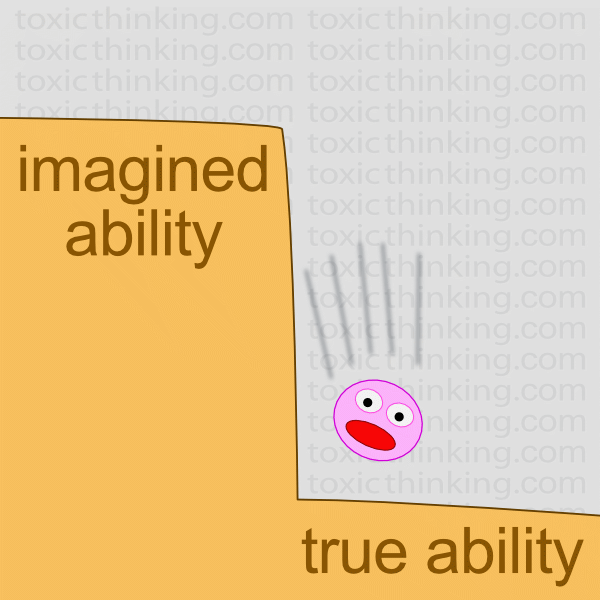One needs to be correctly aware of how good or bad one is at something. If one overestimates how good one is at something, it can lead to embarrassment when people discover that one is not as good as one claimed to be. If the activity that one thought one was good at concerned something that affected people’s lives (e.g. you are a surgeon who incorrectly thinks that you can do a certain surgery well) then this kind of thinking may even cause real harm.
Unfortunately, one’s mind may sometimes wrongly make one feel that one is good at doing a certain activity when in reality, one is not that good at doing that activity. Psychologists have named this way of thinking, where one’s mind overestimates one’scapabilities, as “Dunning – Kruger thinking”. The name is based on the names of the two psychologists who first described it: David Dunning and Justin Kruger.
Here is a short example of Dunning-Kruger thinking:
Alice used to sing in her local school. All her classmates praised her singing ability and this made Alice feel that she was an excellent singer.

Having had such praise from her school friends, Alice was sure that her singing abilities would make her rich and famous. These thoughts even made her ignore her other school subjects.
After some months, Alice contacted a professional music company and told them about her ability to sing well. The company was planning a musical show and invited Alice to join one of their rehearsals so that they could hear and assess her singing ability. When Alice eventually went to the rehearsal, she had to sing along with other singers. As she sang with the other singers, she (and everyone else!) quickly realised that her singing was hopeless. Alice was nowhere as good as she thought she was, and she realised that it was futile to continue trying to be a professional singer.

Once Alice realised that a professional music career was not for her, she returned to her school and luckily managed to catch up with all the school subjects that she had ignored.
As the above example shows, Dunning–Kruger thinking can lead to disappointment and wasted time. However, I am not saying that you should consider yourself useless at everything and not take up challenges. There are many activities where you need to try that activity first before you can make any judgement about how good or bad you will be at it.
To prevent your mind from doing Dunning–Kruger thinking, it is important to get honest feedback from those around you about your abilities. You will get honest feedback only if you are truly open to receiving criticism. Make it clear to those giving you feedback that you would genuinely appreciate their honesty. When asking for feedback, it could be useful to use sentences like, “I would be grateful if you would give me feedback as to how good or bad my singing is, as I need to know if I should spend money on professional singing lessons or should spend it on something else instead.” In this way, you are telling people that you have thought of other options, and this should make it easier for them to give you negative criticism if necessary.
Also, when looking for feedback, it is important to include people who are knowledgeable in the subject you are getting feedback on. Your friends may be great, but are they truly the best qualified to say if you have a future as a top singer?
By the way, I think many politicians suffer from the Dunning–Kruger thinking! They are often surrounded by advisors who keep telling them how great they are, when we the public know that’s often not true!
Make sure that your mind is not doing Dunning-Kruger thinking, as this thinking may take you up to imaginary heights and then suddenly let you fall down to reality!
